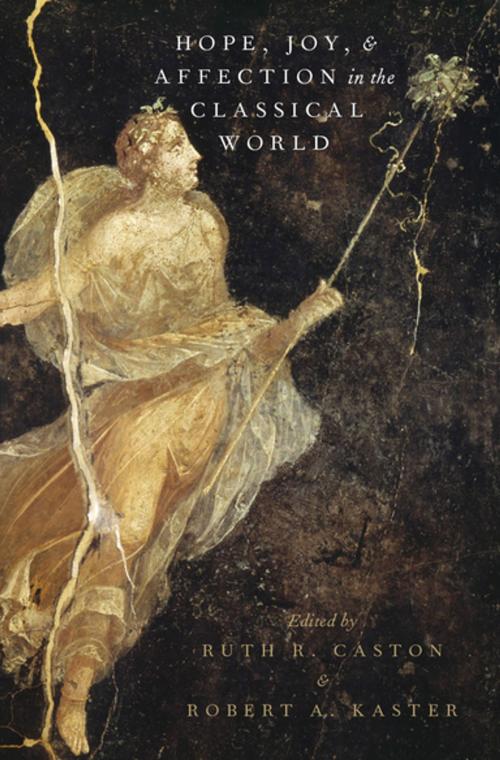Hope, Joy, and Affection in the Classical World
Nonfiction, Religion & Spirituality, Philosophy, Ancient, History, Ancient History, Greece, Rome| Author: | ISBN: | 9780190627171 | |
| Publisher: | Oxford University Press | Publication: | May 2, 2016 |
| Imprint: | Oxford University Press | Language: | English |
| Author: | |
| ISBN: | 9780190627171 |
| Publisher: | Oxford University Press |
| Publication: | May 2, 2016 |
| Imprint: | Oxford University Press |
| Language: | English |
The emotions have long been an interest for those studying ancient Greece and Rome. But while the last few decades have produced excellent studies of individual emotions and the different approaches to them by the major philosophical schools, the focus has been almost entirely on negative emotions. This might give the impression that the Greeks and Romans had little to say about positive emotion, something that would be misguided. As the chapters in this collection indicate, there are representations of positive emotions extending from archaic Greek poetry to Augustine, and in both philosophical works and literary genres as wide-ranging as lyric poetry, forensic oratory, comedy, didactic poetry, and the novel. Nor is the evidence uniform: while many of the literary representations give expression to positive emotion but also describe its loss, the philosophers offer a more optimistic assessment of the possibilities of attaining joy or contentment in this life. The positive emotions show some of the same features that all emotions do. But unlike the negative emotions, which we are able to describe and analyze in great detail because of our preoccupation with them, positive emotions tend to be harder to articulate. Hence the interest of the present study, which considers how positive emotions are described, their relationship to other emotions, the ways in which they are provoked or upset by circumstances, how they complicate and enrich our relationships with other people, and which kinds of positive emotion we should seek to integrate. The ancient works have a great deal to say about all of these topics, and for that reason deserve more study, both for our understanding of antiquity and for our understanding of the positive emotions in general.
The emotions have long been an interest for those studying ancient Greece and Rome. But while the last few decades have produced excellent studies of individual emotions and the different approaches to them by the major philosophical schools, the focus has been almost entirely on negative emotions. This might give the impression that the Greeks and Romans had little to say about positive emotion, something that would be misguided. As the chapters in this collection indicate, there are representations of positive emotions extending from archaic Greek poetry to Augustine, and in both philosophical works and literary genres as wide-ranging as lyric poetry, forensic oratory, comedy, didactic poetry, and the novel. Nor is the evidence uniform: while many of the literary representations give expression to positive emotion but also describe its loss, the philosophers offer a more optimistic assessment of the possibilities of attaining joy or contentment in this life. The positive emotions show some of the same features that all emotions do. But unlike the negative emotions, which we are able to describe and analyze in great detail because of our preoccupation with them, positive emotions tend to be harder to articulate. Hence the interest of the present study, which considers how positive emotions are described, their relationship to other emotions, the ways in which they are provoked or upset by circumstances, how they complicate and enrich our relationships with other people, and which kinds of positive emotion we should seek to integrate. The ancient works have a great deal to say about all of these topics, and for that reason deserve more study, both for our understanding of antiquity and for our understanding of the positive emotions in general.















